

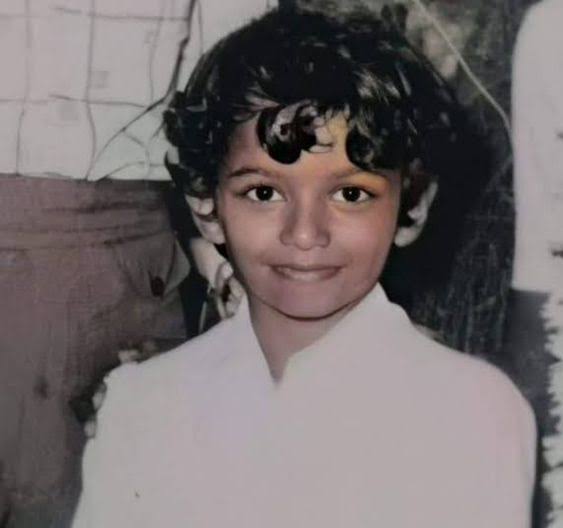
Joseph Vijay Chandrasekhar, popularly known as Thalapathy Vijay, was born on June 22, 1974, in Chennai, Tamil Nadu. He was born into a family with strong ties to the Tamil film industry—his father, S. A. Chandrasekhar, is a renowned filmmaker, and his mother, Shoba Chandrasekhar, is a well-respected playback singer. Vijay's upbringing was immersed in creativity and cinema, which had a profound influence on his career path. Being surrounded by film scripts, recordings, and artists, his interest in acting began to grow at an early age.

Vijay’s early family life was marked by both love and tragedy. He had a younger sister, Vidhya, who died at the age of two—a loss that deeply affected the family, especially Vijay, who was close to her. His parents have often shared in interviews that the grief over Vidhya’s death played a significant role in shaping Vijay's personality, making him introspective and emotionally mature for his age. He has even dedicated some of his success to the memory of his sister.
Growing up, Vijay was known for his energetic and expressive personality, which was evident in home videos and family events. His parents supported his early interest in acting, and with his father's guidance, he made his debut in the film industry as a child artist. His close bond with his family continues to this day, with his parents actively involved in both his personal life and career decisions.

Vijay’s childhood was a mix of normal schooling and early exposure to film sets. He began his education at Fathima Matriculation Higher Secondary School and later moved to Balalok Matriculation Higher Secondary School in Virugambakkam, Chennai. Though he led a relatively modest lifestyle, being the son of a film director meant he often found himself in film studios, observing actors, technicians, and directors at work. These early experiences were instrumental in nurturing his love for cinema.
Even as a school student, Vijay was known for his wit, charm, and sociable nature. Teachers and classmates recall him as a vibrant and confident boy who often participated in school plays, dance performances, and mimicry. His natural flair for performance was evident, and it was no surprise when he began acting in films at a young age. By the time he was a teenager, he had already appeared in nine films as a child artist.
After completing his schooling, Vijay enrolled at Loyola College, Chennai, to pursue a degree in Visual Communications. He chose this course with the intention of understanding the deeper aspects of filmmaking and visual storytelling. However, he discontinued his studies mid-way to focus fully on acting, a decision that would soon pay off as his film career began to take off.

Vijay made his debut as a lead actor in the 1992 film Naalaiya Theerpu, directed by his father. At just 18, his performance showed promise, although the film did not fare well at the box office. Determined to prove his mettle, Vijay continued to take on projects that allowed him to improve his craft. His early films like Sendhoorapandi, Rasigan, and Deva started gaining moderate success, establishing him as a rising star in Tamil cinema.
The breakthrough came with the 1996 romantic drama Poove Unakkaga, directed by Vikraman. The film was a massive success and transformed Vijay's public image
from a struggling newcomer to a promising romantic
hero. His performance was widely praised for its
emotional depth and simplicity. This success opened
up doors for collaborations with some of the most
respected directors in the industry.
During the late 1990s, Vijay focused on roles that appealed to the family audience, while also showcasing his dancing and fighting abilities. Films like Kadhalukku Mariyadhai, Ninaithen Vandhai, and Thulladha Manamum Thullum solidified his position in the industry. These films not only did well at the box office but also contributed to the development of Vijay's now-iconic "mass appeal," where he effortlessly combined charm, sentiment, and action.
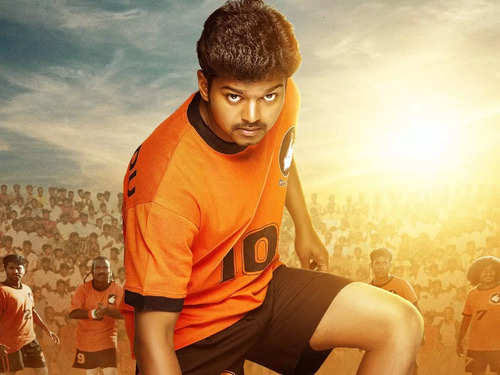
After gaining recognition with romantic and family dramas, Vijay began transitioning into roles that showcased him as an action hero. The 2000s marked a defining phase in his career. With films like Kushi (2000) and Friends (2001), Vijay expanded his range and built a solid fan base among younger audiences. These films highlighted his comic timing, chemistry with co-stars, and ability to carry a film with both style and substance.
However, it was the 2004 blockbuster Ghilli that truly catapulted him into superstardom. A remake of the Telugu film Okkadu, Ghilli was a massive success and remains one of Vijay's most iconic films. His portrayal of Saravanavelu, a courageous and athletic young man, struck a chord with the masses. The film's action sequences, music, and Vijay's energetic performance turned him into a bankable box-office force.
Following Ghilli, Vijay continued to deliver hits like Thirupachi, Sivakasi, and Pokkiri, which further strengthened his mass appeal. His command over dance, emotional scenes, and punch dialogues made him a favorite among family audiences and youth alike. By the late 2000s, he was often compared to legendary actors like Rajinikanth, thanks to his consistent box-office success and pan-Tamil Nadu popularity.
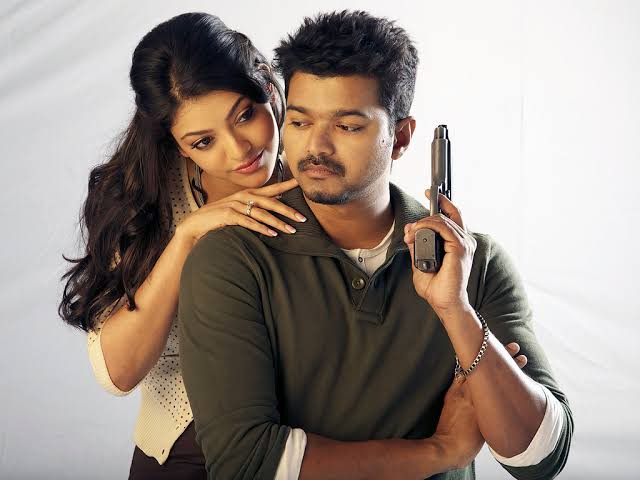
Over the decades, Vijay has been part of numerous critically and commercially successful films. His performance in Thuppakki (2012), directed by A. R. Murugadoss, was a game-changer. Playing an Indian Army officer, Vijay showcased restraint, intelligence, and intensity. The film's success in Tamil Nadu and beyond proved his pan-Indian appeal and raised his profile among audiences unfamiliar with his earlier work.
Another landmark film was Kaththi (2014), also directed by Murugadoss. Vijay played dual roles, portraying both a social activist and a criminal. The film addressed serious issues like corporate exploitation and water scarcity, yet maintained commercial viability. It was lauded for Vijay's ability to switch between two contrasting characters effortlessly.
Theri (2016), Mersal (2017), and Bigil (2019), all directed by Atlee, showcased Vijay in emotionally resonant and socially impactful roles. In Mersal, he played triple roles, tackling issues in the medical field, while Bigil featured him as a football coach inspiring a women's team. His most recent hit Leo (2023), directed by Lokesh Kanagaraj, blended action and psychological drama, receiving widespread acclaim.

Thalapathy Vijay has earned numerous accolades for his performances. Early in his career, he won the Tamil Nadu State Film Special Prize for Best Actor for Kadhalukku Mariyadhai. Over the years, he has consistently been nominated for and won Vijay Awards, SIIMA Awards, and Edison Awards for both critical and commercial successes.
His performances in Thuppakki, Mersal, and Master have been widely appreciated by critics and audiences alike, earning him Best Actor awards from various prestigious film organizations. In Mersal, his socially charged dialogue and charismatic screen presence led to international recognition, including screenings at international film festivals.
In addition to acting awards, Vijay has been honored with titles such as "Entertainer of the Year" and featured in Forbes India's Celebrity 100 list multiple times. His consistent presence in such rankings reflects his market value, fan loyalty, and enduring cultural impact, especially in South India.
Vijay's philanthropic side is often quiet yet impactful. He founded the Vijay Makkal Iyakkam, a fan-based welfare movement that organizes blood donation camps, education aid, medical support, and disaster relief. The organization is active throughout Tamil Nadu and has become a model of socially responsible celebrity fandom.
He has donated generously to flood and cyclone relief efforts, especially during the 2015 Chennai floods and 2020 COVID-19 pandemic. Rather than publicizing his acts, Vijay prefers to keep his charitable work low-key, allowing the impact to speak for itself. He has also supported students financially, encouraging education among underprivileged communities.
His films often incorporate social themes, from medical scams (Mersal) to education reform (Sarkar), reflecting his desire to use cinema as a tool for awareness. These efforts have helped him connect with a broader section of the public, especially those who see him as a socially conscious public figure.

Vijay married Sangeetha Sornalingam in 1999 in a simple yet traditional ceremony. Sangeetha, a fan from the UK, met Vijay after one of his film screenings and impressed him with her appreciation of his work. Their relationship has remained strong and private over the years, and Sangeetha is often seen supporting Vijay during public events.
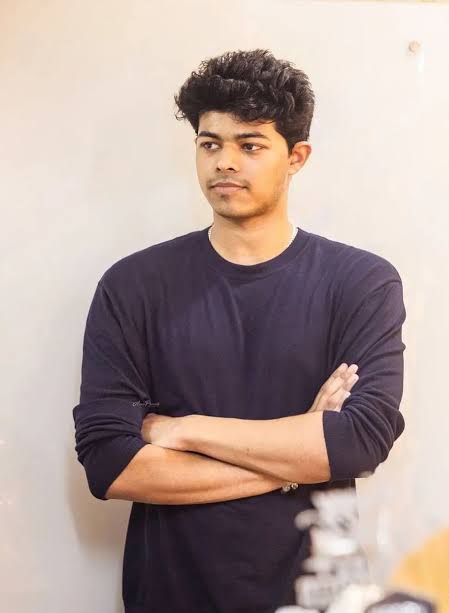

The couple has two children: Jason Sanjay and Divya Sasha. Jason has shown interest in filmmaking, even directing a short film as a student, while Divya made a brief appearance in Theri. Vijay remains highly protective of his family and chooses to keep them away from unnecessary media attention.
Despite being a megastar, Vijay values his privacy. He rarely discusses his family in interviews and avoids overexposing them to public life. This balance between fame and personal life has contributed to his grounded personality and public respect.
Known for his simple and disciplined lifestyle, Vijay avoids flamboyance both on and off screen. He is known to lead a relatively private life, residing in a modest yet secure home in Chennai. Friends and colleagues describe him as humble, punctual, and spiritual, often starting his day with a quiet prayer.
One of his well-known passions is dance. Vijay is considered one of the best dancers in Indian cinema, often choreographing his own steps or collaborating closely with choreographers. He also has a love for cricket and follows both international and IPL matches closely. His involvement in celebrity cricket matches has drawn massive fan attention.
Vijay also enjoys traveling and watching Hollywood and Korean films, often using them as a source of inspiration. Despite his fame, he is rarely seen at parties or public social events, choosing instead to focus on family, film, and service.
Though Vijay was relatively late to join social media platforms, his presence now is massive. His official Twitter account, created in 2009, became active around 2017. Since then, every tweet--be it a poster release, a thank-you note, or a social cause--has gone viral, regularly trending nationwide.
Unlike many celebrities, Vijay uses his social media sparingly but effectively. His posts are strategic and often timed around film promotions or public events. This controlled engagement has only added to his aura and mystique, making each post an event in itself.
Fans also amplify his presence through fan pages, edits, reels, and challenges. Hashtags like #ThalapathyVijay and #MasterBlasterVijay frequently trend, often without his direct participation. His online charisma complements his offline mass appeal, making him one of India's most followed and respected celebrities.
Thalapathy Vijay has significantly shaped the landscape of Tamil cinema. His arrival brought a unique blend of mass appeal and relatable characters that resonated with audiences across age groups. At a time when Tamil cinema was evolving in both style and content, Vijay bridged the gap between commercial masala films and socially relevant storytelling.
His presence helped redefine the "mass hero" archetype. With a signature mix of dance, action, sentiment, and moral-driven dialogues, Vijay carved a unique space in the industry. Films like Thuppakki, Mersal, and Sarkar have set benchmarks for box-office records, inspiring similar high-concept films with social undercurrents.
Moreover, Vijay's influence extends beyond acting. He played a crucial role in introducing innovative marketing strategies, such as audio launches, teaser promotions, and pre-release events that have since become standard in Tamil cinema. His rise also contributed to the growing pan-Indian popularity of Tamil films.
As one of Tamil cinema's most iconic figures, Vijay's legacy is already cemented. With over three decades in the industry and a filmography filled with hits, he has inspired an entire generation of actors and filmmakers. His fan base spans across continents, with his films receiving dubbed releases in multiple languages, including Hindi, Telugu, and Japanese.
Vijay's future in cinema looks equally promising. He has announced collaborations with top directors like Venkat Prabhu and Vetrimaaran, signaling a shift toward more diverse and experimental storytelling. His recent film Leo (2023) introduced him to a new pan-Indian audience, and rumors suggest further crossover projects.
In addition to cinema, there is growing speculation about his entry into politics. While Vijay has not officially confirmed his political ambitions, the groundwork laid by his fan association and public interest initiatives hints at a broader leadership role in Tamil Nadu's future. Whatever path he chooses, his legacy is poised to endure.
Vijay commands one of the most passionate fan bases in Indian cinema. The "Thalapathy" title itself, meaning "commander," was conferred upon him by fans who see him as a leader figure, both on screen and off. His fans are known for their dedication, celebrating his birthdays with welfare activities, blood donation camps, and free food distribution.
Social media platforms are abuzz with Vijay fan clubs that organize mass celebrations during trailer launches, audio releases, and film premieres. These fans have played a crucial role in building the hype around each of his films, often turning them into cultural events. His popularity is especially strong among the youth, who admire his dance, dialogue delivery, and persona.
Unlike many celebrities who rely on digital campaigns, Vijay's fandom is largely organic. Fan-made posters, cutouts as tall as 175 feet, and first-day-first-show traditions in theaters reflect the cultural phenomenon he has become. His connection with fans remains deeply emotional, based on mutual admiration and loyalty.
Vijay's extensive filmography spans more than 65 films over three decades. Starting with his debut as a child actor in Vetri (1984), he moved to lead roles with Naalaiya Theerpu (1992). Despite early setbacks, he built a successful career through consistent performances in films like Poove Unakkaga, Kadhalukku Mariyadhai, and Thulladha Manamum Thullum.
In the 2000s, he delivered blockbusters such as Ghilli, Pokkiri, and Vettaikaaran, all of which established him as a leading action star. The 2010s marked a golden period with Thuppakki, Kaththi, Mersal, and Sarkar, each film reinforcing his star power and versatility.
In recent years, films like Master (2021), Beast (2022), and Leo (2023) have pushed boundaries in terms of scale and reach. His collaborations with new-age directors reflect his evolving choices, ensuring that his filmography remains fresh and relevant to changing audience tastes.
Vijay has worked with some of the most respected filmmakers in the Indian film industry. His collaborations with directors like A. R. Murugadoss (Thuppakki, Kaththi) and Atlee (Theri, Mersal, Bigil) have been particularly successful, delivering a mix of critical acclaim and box-office dominance.
His long-standing relationship with music composer Anirudh Ravichander has given rise to some of the most viral songs and background scores in recent years. Their partnership in Master and Leo contributed significantly to those films' successes, especially among youth audiences.
On the production side, Vijay has closely worked with big banners like Sun Pictures and Seven Screen Studio, ensuring high production quality and widespread marketing. These collaborations have allowed him to explore diverse genres while maintaining a strong brand identity.
Vijay is deeply committed to humanitarian causes, often offering help behind the scenes. Through the Vijay Makkal Iyakkam, he has supported thousands of people with education, healthcare, and employment. The group actively responds to natural disasters, donating essentials and helping rebuild affected communities.
During the COVID-19 pandemic, Vijay reportedly donated to multiple relief funds and arranged for oxygen cylinders and medical aid in Tamil Nadu. His low-key but effective efforts during crises have been widely appreciated by NGOs and local governments.
He has also spoken out on issues like corruption, child abuse, and women's safety through both public statements and film narratives. This alignment of his public persona with social activism gives more weight to his popularity and influence.
Unlike many of his contemporaries, Vijay has been selective with brand endorsements. He avoids over-commercializing his image, choosing instead to maintain credibility and authenticity. Earlier in his career, he endorsed products like Coca-Cola, but gradually reduced his participation in advertisements.
His limited presence in brand marketing has not affected his popularity. In fact, it has strengthened his image as a focused and sincere artist. When he does appear in promotions--usually tied to his film releases--they gain immense traction due to his rarity in the advertisement space.
This strategy has preserved the novelty of his appearances and allowed his films to stand at the center of his public image. His restraint in brand endorsements is often cited as a sign of his respect for his fans' trust.
Vijay has shown business acumen through his strategic investments and production initiatives. Though not officially operating a large production house, he has partnered in co-producing some of his films, giving him partial creative control and profit-sharing.
There are unconfirmed reports of his involvement in real estate and hospitality ventures in and around Chennai. However, Vijay keeps his business dealings private, focusing public attention on his film career and philanthropy.
He has also supported young talents through his fan movement by funding short films, helping launch new artists, and promoting socially conscious cinema. These low-key ventures show his willingness to support the ecosystem that nurtured his own success.
Vijay is widely admired for his humility, discipline, and professionalism. Co-stars and crew members consistently praise his punctuality, dedication, and willingness to rehearse scenes repeatedly to perfect them. His on-set demeanor is known to be calm and cooperative, even under pressure.
The public sees him as an ideal combination of stardom and simplicity. Despite his immense fame, Vijay avoids controversies and prefers to let his work do the talking. This calculated silence has added to his mystique and earned him respect from fans and media alike.
His rare yet impactful public speeches, often delivered at audio launches or political forums, are closely watched and analyzed. Each word carries weight, fueling both admiration and speculation. Vijay's composed public image sets him apart in an industry often fraught with drama.
Thalapathy Vijay is more than a film star--he is a cultural icon in Tamil Nadu. His films, songs, and even fashion choices have influenced pop culture, youth behavior, and local slang. Dialogues from his movies become catchphrases, and his dance moves are replicated across weddings and college functions.
He has become a symbol of aspiration, particularly for the middle class and rural youth. His roles often portray the underdog rising through grit and courage, mirroring the ambitions of many of his fans. This identification makes his success deeply personal for his audience.
Vijay's influence extends globally, with fan clubs in Sri Lanka, Malaysia, UAE, France, and Japan. His ability to bridge language and cultural divides speaks to his universal appeal. As his career progresses, his cultural impact is expected to grow, cementing his place among Indian cinema's greatest icons.
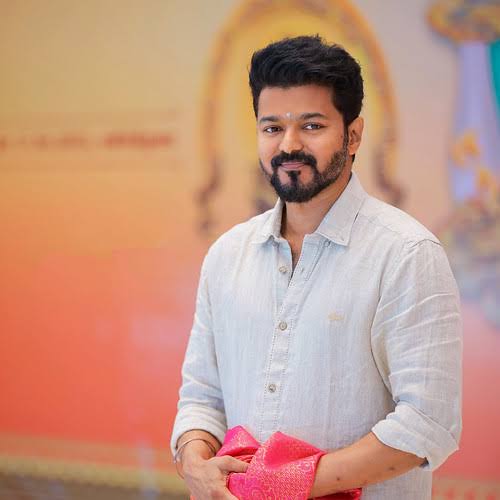
Thalapathy Vijay, the iconic actor and beloved figure in Tamil cinema, has taken a monumental step by entering the political arena. With a career spanning over two decades and a fan base in the millions, Vijay has transformed his screen charisma into a platform for real-world change. His official entry into politics marks a new era, not just for his fans, but for the political landscape of Tamil Nadu.
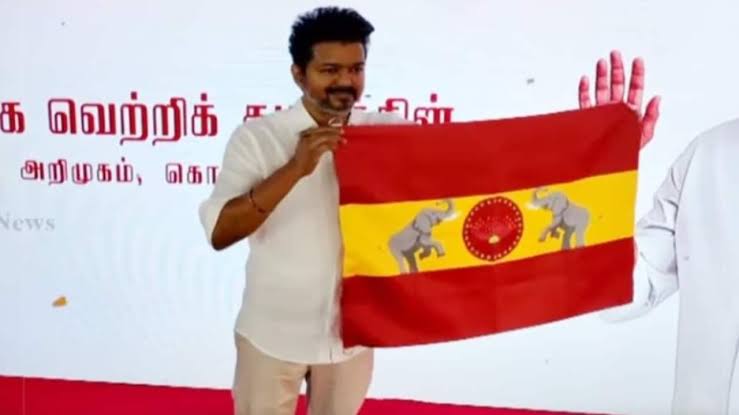
In early 2024, Vijay launched his political party, Tamizhaga Vettri Kazhagam (TVK), a move that followed years of hints through his films, public statements, and the social work of his fan club, Vijay Makkal Iyakkam. The party stands on the pillars of clean politics, education reform, youth empowerment, and social justice. Inspired by leaders like Periyar and Ambedkar, TVK positions itself as a people-centric party focused on long-term development rather than short-term gains.
Since its launch, TVK has gained strong support from the youth and common people. Massive rallies, grassroots membership drives, and active social campaigns have already made Vijay a serious contender in the 2026 Tamil Nadu Assembly elections. As he moves from film sets to political stages, Thalapathy Vijay’s journey continues to inspire, with hopes high for a new kind of leadership in the state.